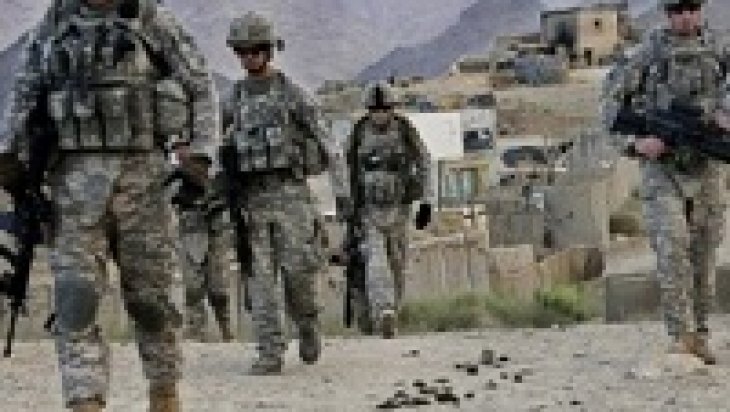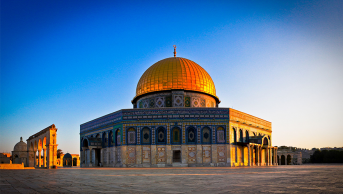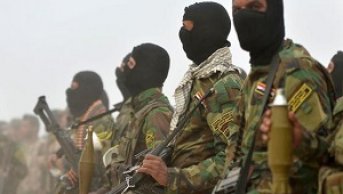The USA May Annoy Turkey

ISIS is a terrorist organization which has kept hold of the second largest and most populated city in Iraq since 9 July. US military officials and Iraqi political authorities indicate that the preparations for operations against ISIS have come to an end. I intentionally make a distinction between military and political authorities since Iraqi military officials that I interviewed think that Iraqi army’s engaging in an operation without support from the militia may lead to a second 9 June syndrome.
Would the USA Use the PKK as a Trump Card in Mosul?
Detailed military and logistic maps of the Mosul offensive are on the table. Military sources report that the PKK terrorist organization will engage in the fight with 620 militants from the northwestern front, in other words, the region of ‘Sinjar Mountain’. It is estimated that 44 thousand armed forces will take part in this fight. It is true that the diplomatic, political and military relations between the USA and Turkey will be dragged into an irreversible process if the PKK that turns Turkey into hell with its bomb attacks and trenches, is involved in the operations. Turkey considers this as an allegation for the time being. It even thinks that the USA will not explicitly use the PKK as a trump card in Mosul. Considering the examples of Sinjar (Shingal), Mahmur and Kirkuk, the officials in the Kurdistan Regional Government (KRG) see this beyond the possibilities since six US military consultants will take charge in the coordination in the region of Sinjar Mountain when the operation is launched.
Al-Hashd al-Shaabi is a Question of Debate
Iraqi military officials who indicate that the operation could be launched on 20 March demand more than 40 al-Hashd al-Shaabi groups that joined Tikrit and Anbar operations to take part in the Mosul offensive as well. However, KRG does not want to allow al-Hashd al-Shaabi groups to be deployed in and pass to the regions close to their borders. It also says it out loud in the military meeting. The officials in Baghdad want to deliver and deploy al-Hashd al-Shaabi groups through Kirkuk-Al-Hawiga. Nevertheless, the Kurdish thinks that the conflicts will be intensified between al-Hashd al-Shaabi groups and Sunnite groups, most importantly the Kurdish Peshmerga.
It has been learnt that such groups as Kata’ib Hezbollah, Badr Organization, Kata'ib Sayyid al-Shuhada, Saraya al-Salam, Khorasan Brigades and Feilak al-Vaad are among al-Hashd al-Shaabi groups that Baghdad considers to be controllable and demands to engage in the operations. Local sources underlines that armed groups may not want to leave Kirkuk after using it as a base. Kirkuk, which has 7% of the oil reserves in the world, may turn into a battlefield between the Kurdish and the Shiite.
Having been established in the context of the fight against ISIS, the ‘coalition forces’ including Turkey are also expected to dispatch air support to the operations. However, problems arise again in terms of air operations since the coalition countries have focused their military capacity on Gulf states and the technical equipment which will coordinate the process in the Mosul offensive has not yet been completely achieved. In other words, there is no agreement to ensure an air operation network. The last but not the least, European Union (EU) countries that gave unlimited support to the USA at the beginning withdrew one third of their capacity after the two attacks in France. Some countries even withdrew all their aircrafts. In this situation, the USA and Turkey will be supposed to play an active role in air operations as well as the war crafts which the Saudi sent to İncirlik Base.
The Outrage is Felt More Deeply against the USA
The USA sat back and watched when the terrorist organization ISIS captured Mosul. The population in the Middle East, especially Iraqi people reacted to this attitude of the USA with outrage. The US officials who made a promise of freedom but thrown Iraq to the wolves said that “they had no strategy against ISIS”. This statement was interpreted as: “Do whatever you want”. The outrage will be felt more deeply unless the USA makes an intervention by considering the regional structure before ISIS terror gains more power.
The Success of the Operation Depends on Ground Offensive
Local instruments impel the Peshmerga and Iraqi Army to take action again for Mosul after two years. Iraqi Army had to leave Mosul to ISIS in 17 hours on 9 June 2014. Now, a combined army prepares for the operation with 62 thousand armed forces from Iraqi Army, 31 thousand from Iraqi National Army, 8 thousand from the Peshmerga and 5 thousand from Arab and Turkmen forces in Mosul (44 thousand forces in total). So, how realistic is such a combined army? We will begin to see this at the second stage of the operations. At the first stage, it is foreseen that air operations will be launched and then the ground instruments will take action. It is mostly important to keep hold of the city rather than reclaiming it since it has never been the question of dominance in Mosul since the Iraqi operation of the USA.
Turkmen...
It is known that Ankara does not take kindly to the involvement of the groups such as al-Hashd al-Shaabi in the operations –especially their deployment in Turkmen regions. Ankara does not want to give credit to any policy that will trigger sectarian separation among Turkmen. However, the relations in the field are shaped in accordance with Iran’s Turkmen policy which is in contrast to Turkey’s opinions. It is seen that sectarian and separationist approaches have gradually deepened since 2003. This approach has not yet gained a serious dimension among Turkmen in Kirkuk. However, unhealable injuries have been caused among Shiite and Sunnite Turkmen in Tal Afar, a Turkmen district. Iran tries to be also influential among Turkmen through al-Hashd al-Shaabi. Turkey supports the structuring where all strata are together in Bashiqa camp. The sectarian conflicts in Iraq may affect Turkmen in the long run.
The USA Will Be in the Field with Its Military Consultants
US military consultants have conducted topographical surveys on three sides of Mosul since 22 October 2015. They will give direct support to the military forces on the ground in Zummar, Tal Afar, Sinjar and Al-Hawiga. Furthermore, they will promote the coordination between armed groups that have no political and military communication. However, it is not as easy as it is thought to be because all groups which will be involved in the operation want to govern Mosul. The USA should answer this question while managing the groups: “Who will control Mosul after its liberation or will the city be divided into two cantons so that two different groups can control it?” There is still no answer to this critical question.
Limited Support from Local Instruments
US officials started negotiations with the leaders of 11 important Arab, Turkmen and Kurdish tribes in al-Hawiga, Tal Afar, Zummar and Mosul. Only Zebari and Herki tribes of Kurdish origin have so far given the expected support in Mosul. It has been learned that the leaders of Sunnite Arab tribes and Turkmen tribes in Tal Afar have demanded insurance for the post-operation period. Military sources indicate that the only idea that the USA has in mind is to clear ISIS away from Mosul and that it doesn’t want to talk about any plans afterwards. That is why it cannot receive the support expected from the Sunnite.
Kurds Do not Want to Pass on the West Side of the Tigris
KRG which will support the Mosul offensive claims that the operation should be divided into 7 parcels after starting in Tal Afar. Nevertheless, the USA defends that two years has been lost and it is important to act quickly. Kurdish Peshmerga acts cautiously since the USA does not make any political statements about the future of Mosul. KRG will fix the Peshmerga forces in Sinjar, Zummar and Mahmur. Concerning Mosul, it wants to go until the east side of the Tigris where there is Kurdish dominance. Indeed, Kurds have an explicit discourse about Mosul. They say the Tigris should be the border and the east side should be included in KRG. However, the USA has not assured Kurds in this regard. The USA acts strategically within this context. It shows the PKK terrorist organization as a trump card against the Peshmerga.
Technical Difficulties of the Operation
Iraqi military sources think that what should be taken into consideration and makes the operation more difficult in military terms in the large-scale Mosul offensive is the urbanization structure of Mosul. Mosul is shaped with the model of horizontal urbanization and there are not high-rise buildings except for a few government agencies and hotels. Therefore, the city is expanded in a large area, which may cause trouble. On the other hand, they believe that the control over the city will be hardly established for a long time after an operation in Mosul.
ISIS Structure in Iraq
On the other hand, Iraqi and US sources draw attention to the difference of ISIS structuring in Iraq and Syria. Iraqi intelligence reports show that 82% of the militants in Mosul and Tal Afar which has strategic importance are former members of Saddam army, in other words, they are Baathist. Most importantly, it is known that these militants have the military capacity to follow the field and military activity. According to the US sources, there are 13 thousand ISIS militants in Mosul. Iraqi sources say that this figure is around 17 thousand. That is to say, even the situation inside is not clear.
This article is published on the website of Yeni Şafak under the title of “ABD’nin Musul’da Tehlikeli Oyunu” (Dangerous Game of the USA in Mosul).








